Amendments to the Pay Act of the Armed Forces (軍人待遇條例) will cost an estimated NT$30 billion (US $1.03 billion) in additional annual personnel expenditure, the Ministry of National Defense (MND) said yesterday.
The changes, which passed a third reading in the Legislative Yuan on June 10 and were formally promulgated by the Presidential Office on June 27, raise compensation for both volunteer and conscripted servicepersons.
Under the revised law, monthly allowances for volunteer servicepersons will increase from the current range of NT $13,000-NT$15,000 to NT$30,000, the MND said.
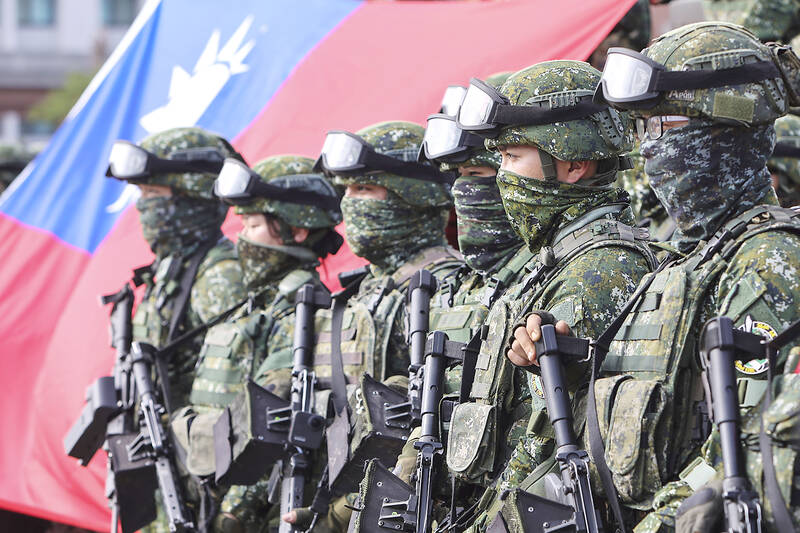
Photo: AP
For conscripted servicepersons, total monthly compensation must now meet or exceed the minimum wage as defined under the Minimum Wage Act (最低工資法).
Currently, a conscripted second-class private in the military earns NT$22,000 per month, according to the MND.
Lu Hsing-ting (盧星 廷) of the MND’s Department of Resource Planning said the ministry will carry out the law in accordance with legal procedures and Executive Yuan directives.
Major General Kao Chih-hsiung (高志雄) from the MND’s Department of Resource Planning said the NT$30 billion figure reflects the estimated total increase in personnel expenditure following pay adjustments.
Kao said salary adjustments for conscripted servicepersons are still under review and will be implemented according to the law.
He added that the MND is working with the Directorate General of Budget, Accounting and Statistics to finalize the changes and include them in upcoming budget plans.
Lieutenant General Sun Li-fang (孫立方), director of the ministry’s political affairs office, said the government already implemented pay increases for volunteer servicepersons and combat units, and will roll out boarding privilege measures in July, with additional measures planned.
According to Sun, the government’s efforts demonstrate both its respect for servicepersons and recognition of their roles.
Sun added that recruitment and retention figures have all improved this year compared to last year.
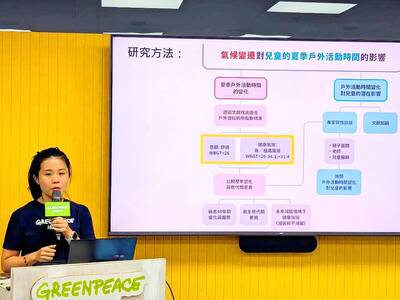
The government should improve children’s outdoor spaces and accelerate carbon reduction programs, as the risk of heat-related injury due to high summer temperatures rises each year, Greenpeace told a news conference yesterday. Greenpeace examined summer temperatures in Taipei, New Taipei City, Taoyuan, Hsinchu City, Taichung, Tainan and Kaohsiung to determine the effects of high temperatures and climate change on children’s outdoor activities, citing data garnered by China Medical University, which defines a wet-bulb globe temperature (WBGT) of 29°C or higher as posing the risk of heat-related injury. According to the Central Weather Administration, WBGT, commonly referred to as the heat index, estimates
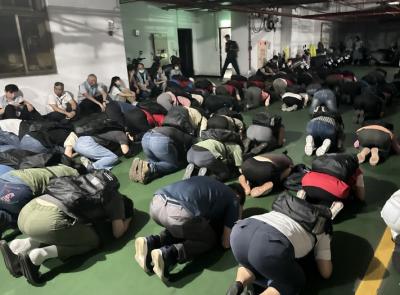
Taipei and other northern cities are to host air-raid drills from 1:30pm to 2pm tomorrow as part of urban resilience drills held alongside the Han Kuang exercises, Taiwan’s largest annual military exercises. Taipei, New Taipei City, Keelung, Taoyuan, Yilan County, Hsinchu City and Hsinchu County are to hold the annual Wanan air defense exercise tomorrow, following similar drills held in central and southern Taiwan yesterday and today respectively. The Taipei Mass Rapid Transit (MRT) and Maokong Gondola are to run as usual, although stations and passenger parking lots would have an “entry only, no exit” policy once air raid sirens sound, Taipei
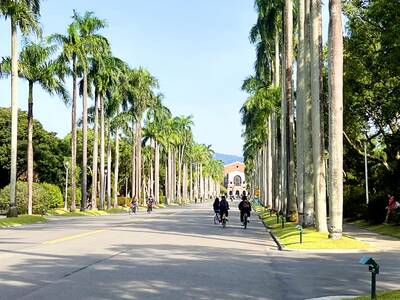
Taipei placed 14th in the Quacquarelli Symonds (QS) Best Student Cities 2026 list, its highest ever, according to results released yesterday. With an overall score of 89.1, the city climbed 12 places from the previous year, surpassing its previous best ranking of 17th in 2019. Taipei is “one of Asia’s leading higher-education hubs,” with strong employer activity scores and students “enjoying their experience of the city and often keen to stay after graduation,” a QS staff writer said. In addition to Taipei, Hsinchu (71st), Tainan (92nd), Taichung (113th) and Taoyuan (130th) also made QS’ list of the top 150 student cities. Hsinchu showed the
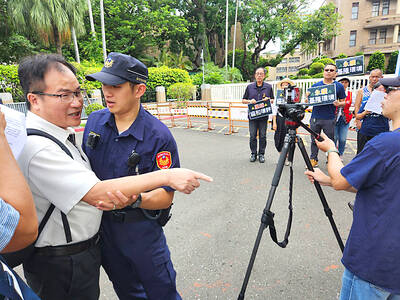
Environmental groups yesterday filed an appeal with the Executive Yuan, seeking to revoke the environmental impact assessment (EIA) conditionally approved in February for the Hsieh-ho Power Plant’s planned fourth liquefied natural gas (LNG) receiving station off the coast of Keelung. The appeal was filed jointly by the Protect Waimushan Seashore Action Group, the Wild at Heart Legal Defense Association and the Keelung City Taiwan Head Cultural Association, which together held a news conference outside the Executive Yuan in Taipei. Explaining the reasons for the appeal, Wang Hsing-chih (王醒之) of the Protect Waimushan Seashore Action Group said that the EIA failed to address